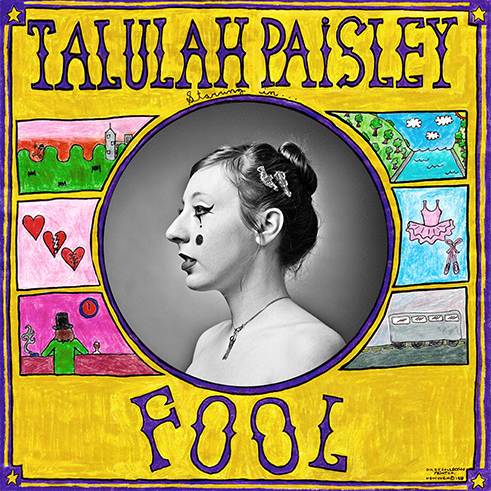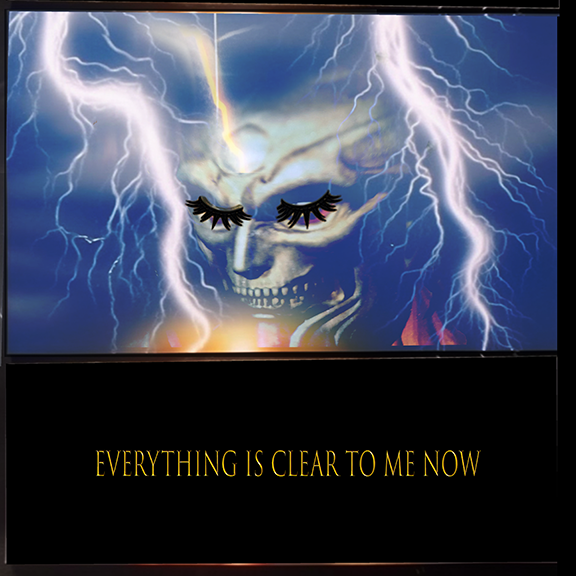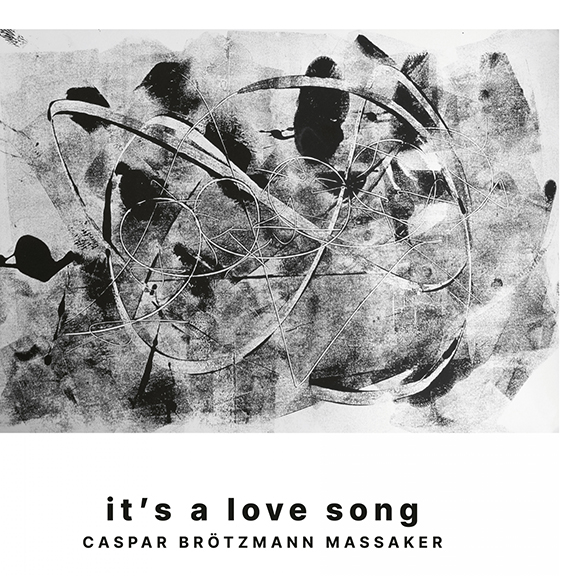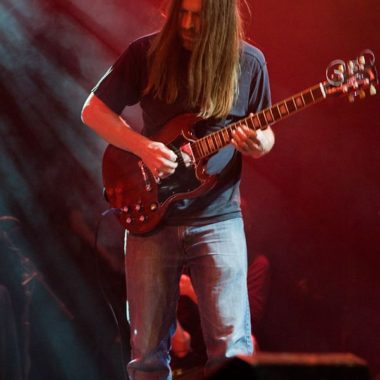 \
\
Sultry haze of balmy nights. The Egypt-born, Quebec-based singer/composer/producer Nadah El Shazly has built a following in recent years with a blend of club music experimentation and Arabic tradition. She’s been a big part of the rich and exciting music coming out of the Beirut / Cairo / Istanbul triangle (Karkhana, Praed Orchestra!) as well as a variety of Montreal projects spearheaded by Sam Shalabi (Land of Kush in particular). It’s a rich scene (or scenes) well worth digging into (see also Maurice Louca’s In the Palm of a Ghost upon which she’s again heard). Her debut solo album, 2017’s Ahwar, gained considerable attention, leaning more toward IDM/braindance vibes than jazz-inflected experimentalism. It’s surprising that it took eight years for another album to come along under her name, but Laini Tani (CD, LP, download out June 6 on One Little Independent Records, the label behind Björk singles and remixes in recent years) is a surprisingly thoughtful album.
There’s a lot packed into the title. According to press materials, “laini tani” refers to an “exhilarating rush of excess, evoking a sultry haze of balmy nights that stretch effortlessly into dawn while clubs continue unphased.” That’s perhaps Arabic slang (I failed to find other references online) but whatever the source, it certainly paints a picture. The club is still throbbing in the background (if I’m grokking this properly) but we’re outside, undecided between heading back in or heading out into the night. The first half of the album is a downtempo, late-night chill with gentle harps, sequenced synths and reverberating voices. But in the final third, the air starts to get thicker. “Labkha” is reworked from El Shazly’s 2024 album Pollution Opera (with Welsh producer/vocalist/composer) Elvin Brandhi, here finding a softer but still dissonant, slightly tense, sound.
What’s maybe most striking about Laini Tani is the way the final arc informs what preceded. On repeat listens, textures and details emerge that may have been missed before, as if you’re learning the language by listening. “Labkha” is followed by the title track, a slow and achingly beautiful voice and harp duet that bends without breaking as percussion and effects come in and out. The closing “Ghorzetein” is almost too perfect a picture of the music. It’s a dramatic soundscape with El Shazly’s voice close in the mix and a determined rhythm over ambient sound collage. The title translates as “two stitches” and the percussion track is built from audio of a pulmonary resuscitation. Or at least that’s wha the press release suggests. I’m happy believing it’s true as the night stretches toward dawn.

Fools rushing in. Imagine if Sally Simpson, a bit player in the Who’s Tommy, had her own rock opera, or the unnamed kids in Bowie’s “Starman,” hoping to get noticed by a rock’n’roll visitor from outer space. Those kids—yearning for a brush with fame to be their destiny—are the only things making fame possible for their icons. That’s who I imagine Talulah Paisley to be. She’s a little bit retro. She’s a true believer. And she dedicated her first album to “all dreamers.”
Paisley is the invention of Lyris Faron, who got MTV and NPR attention with her riot-grrrl band T-Rextasy a decade or so ago. Faron has developed the lovelorn Talulah Paisley persona through a number of singles over the years, retaining the confessional, sing-song charm of her previous band. Fool, Talulah’s full-length debut (download out June 11 via The People’s Coalition of Tandy and Ducky Collection) is quirky af. Faron delivers the songs like Carol Kane putting on her best New Yawk accent. She plays guitars, piano, keyboards (including a mellotron), percussion and toys, and produced the album as well; an assortment of friends add vocals, strings, horns, more percussion and, presumably, good vibes. There’s a feeling of friendship throughout the album.
Fool isn’t about aspirations to stardom, though. That’s just a feeling I get, maybe because of the clown makeup Paisley wears. The dozen songs are about people she’s known and hearts that have been broken, including her own. She namechecks fame, though: Lennon and McCartney, Dali and Houdini, New York City streets and Talulah herself in the third person. There’s a good bit of girl group inspiration—not of the riot variety so much as Chiffons and Shirelles, the same sort of singles that influenced Ziggy Stardust, and the New York Dolls for that matter. Start with the video for “Slink,” one of the album’s highlights. It’s a gem, and that Talulah Paisley seems to be a pretty worldly lady.

If Paisley’s just a little bit manic, Cincinnati’s Fruit LoOops are full-on schizoid. After a handful of singles and EP’s since 2018, the vertigo-inducing three-piece released their first full-length in 2023. Everything is Clear to Me Now is the 13-minute follow-up (CD and digital available June 6 from Orange Milk Records), and it’s a catchy collision of unbridled energy. There are elements of electro-clash and Add N to X, the tribal shouts and chants of Foot Village and heavy, no wave, adrenaline-infused attitude. Breakneck tempos, squelching synths and pounding beats nearly bury Jackie Switzer’s layered, processed vocals. The four tracks are several kinds of blast, but the LoOops have also achieved the commendable feat of making music that’s entirely unlistenable on a cell phone. Their midrange overdrive turns into blue-gray sludge on tiny pocket speakers. Where Paisley yearns for attention, Fruit LoOops demand it.

This is not a love song. The German guitarist Caspar Brötzmann isn’t as well known, at least on these shores, as is his father, the departed free jazz titan Peter Brötzmann, and rarely releasing recordings for the last decade doesn’t do much to bolster the reputation. Like his father, Brötzmann leans into deep energy, generally with his power trio Massaker and always with a rock’n’roll core. The new it’s a love song (Exile On Mainstream Records/Corbett vs. Dempsey, June 20) shows him in an improvised pummel of fury, his vocal warble and electric drone making the record more than a little reminiscent of the 2014 Scott Walker / Sunn O))) collaboration Soused.
A three-and-a-half minute intro (“Bar Open”) introduces resonant guitar and super-slow slap-back delay before the thunderous “All This Violence” commences: nebulus, dark and foreboding, bringing the extended guitar solos of Haino Keiji to mind. It’s nine minutes into the song’s nearly 14 before the bass and drums kick in and then, shortly after, Brötzmann’s shouted lyrics like a brief poem laying bare the wreckage and devastation of war. It’s a harrowing piece of music, then repeated in a second live recording, this one stretching past the 17-minute mark.
Brötzmann was already at work on a more song-oriented album when real-world horrors put that on hold. it’s a love song is full of global rage, but also of love for humanity, for past, present and future victims of violence. The plan is to return to the previous project once this one was unleashed. Maybe, just maybe, world powers might give Brötzmann and us all a little peace of mind to focus on other things.
Author
Discover more from Red Hook Star-Revue
Subscribe to get the latest posts sent to your email.









